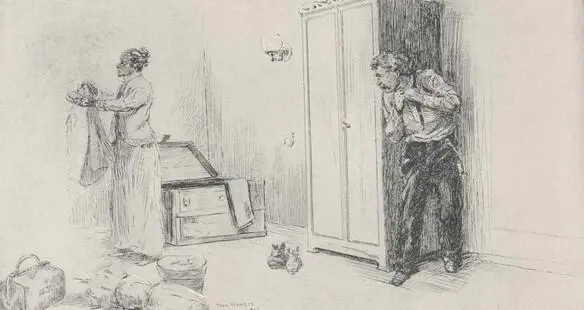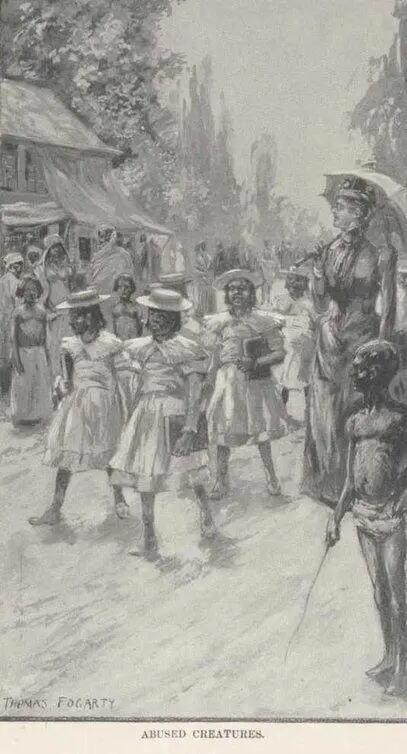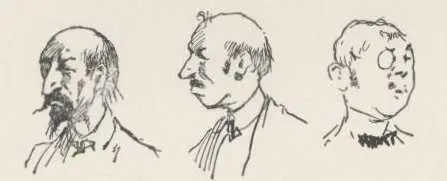Mark Twain - Following the Equator
Здесь есть возможность читать онлайн «Mark Twain - Following the Equator» весь текст электронной книги совершенно бесплатно (целиком полную версию без сокращений). В некоторых случаях можно слушать аудио, скачать через торрент в формате fb2 и присутствует краткое содержание. Год выпуска: 2004, Жанр: Классическая проза, Юмористическая проза, на английском языке. Описание произведения, (предисловие) а так же отзывы посетителей доступны на портале библиотеки ЛибКат.
- Название:Following the Equator
- Автор:
- Жанр:
- Год:2004
- ISBN:нет данных
- Рейтинг книги:3 / 5. Голосов: 1
-
Избранное:Добавить в избранное
- Отзывы:
-
Ваша оценка:
- 60
- 1
- 2
- 3
- 4
- 5
Following the Equator: краткое содержание, описание и аннотация
Предлагаем к чтению аннотацию, описание, краткое содержание или предисловие (зависит от того, что написал сам автор книги «Following the Equator»). Если вы не нашли необходимую информацию о книге — напишите в комментариях, мы постараемся отыскать её.
Following the Equator — читать онлайн бесплатно полную книгу (весь текст) целиком
Ниже представлен текст книги, разбитый по страницам. Система сохранения места последней прочитанной страницы, позволяет с удобством читать онлайн бесплатно книгу «Following the Equator», без необходимости каждый раз заново искать на чём Вы остановились. Поставьте закладку, и сможете в любой момент перейти на страницу, на которой закончили чтение.
Интервал:
Закладка:
January 14. Hotel Bristol. Servant Brompy. Alert, gentle, smiling, winning young brown creature as ever was. Beautiful shining black hair combed back like a woman's, and knotted at the back of his head—tortoise-shell comb in it, sign that he is a Singhalese; slender, shapely form; jacket; under it is a beltless and flowing white cotton gown—from neck straight to heel; he and his outfit quite unmasculine. It was an embarrassment to undress before him.

We drove to the market, using the Japanese jinriksha—our first acquaintanceship with it. It is a light cart, with a native to draw it. He makes good speed for half-an-hour, but it is hard work for him; he is too slight for it. After the half-hour there is no more pleasure for you; your attention is all on the man, just as it would be on a tired horse, and necessarily your sympathy is there too. There's a plenty of these 'rickshas, and the tariff is incredibly cheap.
I was in Cairo years ago. That was Oriental, but there was a lack. When you are in Florida or New Orleans you are in the South—that is granted; but you are not in the South; you are in a modified South, a tempered South. Cairo was a tempered Orient—an Orient with an indefinite something wanting. That feeling was not present in Ceylon. Ceylon was Oriental in the last measure of completeness—utterly Oriental; also utterly tropical; and indeed to one's unreasoning spiritual sense the two things belong together. All the requisites were present. The costumes were right; the black and brown exposures, unconscious of immodesty, were right; the juggler was there, with his basket, his snakes, his mongoose, and his arrangements for growing a tree from seed to foliage and ripe fruitage before one's eyes; in sight were plants and flowers familiar to one on books but in no other way—celebrated, desirable, strange, but in production restricted to the hot belt of the equator; and out a little way in the country were the proper deadly snakes, and fierce beasts of prey, and the wild elephant and the monkey. And there was that swoon in the air which one associates with the tropics, and that smother of heat, heavy with odors of unknown flowers, and that sudden invasion of purple gloom fissured with lightnings,—then the tumult of crashing thunder and the downpour and presently all sunny and smiling again; all these things were there; the conditions were complete, nothing was lacking. And away off in the deeps of the jungle and in the remotenesses of the mountains were the ruined cities and mouldering temples, mysterious relics of the pomps of a forgotten time and a vanished race—and this was as it should be, also, for nothing is quite satisfyingly Oriental that lacks the somber and impressive qualities of mystery and antiquity.
The drive through the town and out to the Galle Face by the seashore, what a dream it was of tropical splendors of bloom and blossom, and Oriental conflagrations of costume! The walking groups of men, women, boys, girls, babies—each individual was a flame, each group a house afire for color. And such stunning colors, such intensely vivid colors, such rich and exquisite minglings and fusings of rainbows and lightnings! And all harmonious, all in perfect taste; never a discordant note; never a color on any person swearing at another color on him or failing to harmonize faultlessly with the colors of any group the wearer might join. The stuffs were silk—thin, soft, delicate, clinging; and, as a rule, each piece a solid color: a splendid green, a splendid blue, a splendid yellow, a splendid purple, a splendid ruby, deep, and rich with smouldering fires—they swept continuously by in crowds and legions and multitudes, glowing, flashing, burning, radiant; and every five seconds came a burst of blinding red that made a body catch his breath, and filled his heart with joy. And then, the unimaginable grace of those costumes! Sometimes a woman's whole dress was but a scarf wound about her person and her head, sometimes a man's was but a turban and a careless rag or two—in both cases generous areas of polished dark skin showing—but always the arrangement compelled the homage of the eye and made the heart sing for gladness.
I can see it to this day, that radiant panorama, that wilderness of rich color, that incomparable dissolving-view of harmonious tints, and lithe half-covered forms, and beautiful brown faces, and gracious and graceful gestures and attitudes and movements, free, unstudied, barren of stiffness and restraint, and—
Just then, into this dream of fairyland and paradise a grating dissonance was injected.
Out of a missionary school came marching, two and two, sixteen prim and pious little Christian black girls, Europeanly clothed—dressed, to the last detail, as they would have been dressed on a summer Sunday in an English or American village. Those clothes—oh, they were unspeakably ugly! Ugly, barbarous, destitute of taste, destitute of grace, repulsive as a shroud. I looked at my womenfolk's clothes—just full-grown duplicates of the outrages disguising those poor little abused creatures—and was ashamed to be seen in the street with them. Then I looked at my own clothes, and was ashamed to be seen in the street with myself.

However, we must put up with our clothes as they are—they have their reason for existing. They are on us to expose us—to advertise what we wear them to conceal. They are a sign; a sign of insincerity; a sign of suppressed vanity; a pretense that we despise gorgeous colors and the graces of harmony and form; and we put them on to propagate that lie and back it up. But we do not deceive our neighbor; and when we step into Ceylon we realize that we have not even deceived ourselves. We do love brilliant colors and graceful costumes; and at home we will turn out in a storm to see them when the procession goes by—and envy the wearers. We go to the theater to look at them and grieve that we can't be clothed like that. We go to the King's ball, when we get a chance, and are glad of a sight of the splendid uniforms and the glittering orders. When we are granted permission to attend an imperial drawing-room we shut ourselves up in private and parade around in the theatrical court-dress by the hour, and admire ourselves in the glass, and are utterly happy; and every member of every governor's staff in democratic America does the same with his grand new uniform—and if he is not watched he will get himself photographed in it, too. When I see the Lord Mayor's footman I am dissatisfied with my lot. Yes, our clothes are a lie, and have been nothing short of that these hundred years. They are insincere, they are the ugly and appropriate outward exposure of an inward sham and a moral decay.
The last little brown boy I chanced to notice in the crowds and swarms of Colombo had nothing on but a twine string around his waist, but in my memory the frank honesty of his costume still stands out in pleasant contrast with the odious flummery in which the little Sunday-school dowdies were masquerading.

CHAPTER XXXVIII.
Prosperity is the best protector of principle.
—Pudd'nhead Wilson's New Calendar.
Steamer Rosetta to Bombay—Limes 14 cents a Barrel—Bombay, a Bewitching City—Descriptions of People and Dress—Woman as a Road Decoration—India, the Land of Dreams and Romance—Fourteen Porters to Carry Baggage—Correcting a Servant—Killing a Slave—Arranging a Bedroom—Three Hours' Work and a Terrible Racket—The Bird of Birds, the Indian Crow
Читать дальшеИнтервал:
Закладка:
Похожие книги на «Following the Equator»
Представляем Вашему вниманию похожие книги на «Following the Equator» списком для выбора. Мы отобрали схожую по названию и смыслу литературу в надежде предоставить читателям больше вариантов отыскать новые, интересные, ещё непрочитанные произведения.
Обсуждение, отзывы о книге «Following the Equator» и просто собственные мнения читателей. Оставьте ваши комментарии, напишите, что Вы думаете о произведении, его смысле или главных героях. Укажите что конкретно понравилось, а что нет, и почему Вы так считаете.











